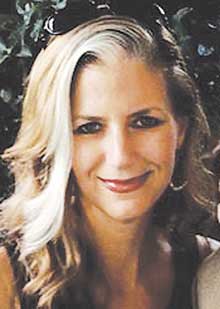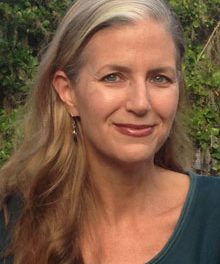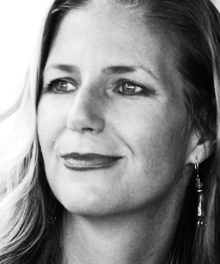 By Margaret Evans, Editor
By Margaret Evans, Editor
A few weeks ago, a friend invited me to speak at an event being hosted by a local civic group later this month. A “post-election” event, specifically. The plan, she said, was to help our community heal, rebuild relationships and make new connections after this horrific election season. (No pressure, right?) The theme of my talk was to be “forgiveness and unity,” a topic upon which I have zero authority to speak. Fortunately, I was unavailable on the date they had in mind.
Unfortunately, they changed the date.
So now I’m in a pickle. I’ve got to prepare a speech about “unity and forgiveness” as if I were some kind of expert on the subject. I am neither theologian nor philosopher, sociologist nor psychologist, self-help guru nor Oprah. I have no special knowledge or wisdom to impart.
As I pondered this invitation – why in the world had they asked me?! – it occurred to me that I’ve been an obsessive student of these concepts, forgiveness and unity, throughout my writing career. Maybe I’ve somehow given the mistaken impression that I’ve “arrived”?
Ha!
If I’ve learned anything, it’s that you never really arrive when it comes to “forgiveness and unity.” You just keep traveling toward them, trying not to step in too many puddles or fall in too many ditches along the way. There is always more forgiving to do – and ask for – up ahead on the path, and without that forgiveness, there can be no unity . . . which is fragile and ephemeral at best. The two are symbiotic, for sure – forgiveness and unity – but they’re kind of like the chicken and the egg. It’s easier to forgive someone with whom you feel united, but it’s difficult to feel united when you just can’t forgive.
It’s hard enough to do the forgiveness/unity shuffle within our own families. (Which is probably why my husband howled when I told him I’d been asked to give this speech.) But now we’re talking about a whole country?! A very large, diverse, antagonistic country full of people who actually seem to enjoy being angry with each other.
How are we supposed to feel like “one nation under God, indivisible” after this rip-roaring election from hell? That’s what I have to figure out in the next couple of weeks.
Speaking of which, I realize half of you are irked that “under God” is still in the Pledge, while the other half would sooner stab yourselves in the eyeball than give up that phrase. And that’s just a tiny tip of the giant ideological iceberg currently dividing Americans. So you see my dilemma, right?
Or maybe you’re not as aware of the iceberg as I am. Maybe it’s not a cold, hard, ever-present reality in your life like it is in mine. I write about politics and culture for a living, so I’m particularly tuned in. I also spend a lot of time on social media, and I’m here to tell you . . . it’s a warzone. As we edge ever closer to the election, convictions are running deep and tensions are sky high. Forget the usual slings and arrows. Verbal bombs are exploding all over the place. The carnage is nauseating.
How will we clean up the emotional battlefield when it’s all over? Who tends to the wounded when everybody’s bleeding?
How will we find forgiveness and recover our sense of unity?
Honestly? I have no idea. But since I have to give a speech about it, I’ve been looking into the question. Rather desperately, in fact.
Sometimes, when I’m eager to understand a concept, I look to the etymology of the word, itself. Since “unity” seemed rather simple and obvious, I decided to examine “forgive.”
From “The Word Detective” online, I learned the following:
The root of “forgive” is the Latin word “perdonare,” meaning “to give completely, without reservation.” (That “perdonare” is also the source of our English “pardon.”) When the Latin “perdonare” was adopted into the Germanic ancestor of English, it was translated piece-by-piece, making the result what linguists call a “calque” (from the French “calquer,” to trace or copy), a literal transliteration. “Per” was replaced by “for,” a prefix that in this case means “thoroughly,” and “donare” with “giefan” (“to give”).
So there you have it. Though it’s taken on extra layers, “forgive” – at its heart – means “to give thoroughly.” Not to lend. Not to bargain over. To give. And not reservedly, not conditionally, but thoroughly. Forgiveness is not a transaction, not a quid pro quo, tit-for-tat, “you-scratch-my-back-and-I’ll-scratch-yours” kinda thing. It’s an act of giving thoroughly. Giving up a grudge. Giving pardon. Giving good will. Thoroughly.
Wow. In our current political climate, it almost seems like too much to ask. And to be perfectly frank, I do not believe forgiveness/unity is possible if we continue with this laser-like focus on politics. Politics, for the most part, is a transaction – or a series thereof. It’s about wheeling and dealing, compromising and prioritizing. It’s about furthering various interests while leaving others . . . unfurthered. Most of all, politics is about arranging and rearranging power. Politics is not about forgiveness and it’s not about unity.
But we can be. Humans are political animals, but that’s not all we are. In a democratic republic, politics is a necessary evi . . . um, project. But it should not be an all-consuming obsession. When this election’s over – and there’s only a week to go, y’all! – we must find a healthier national pastime if we’re to cultivate forgiveness and unity.
As I sat at my desk early Saturday morning, with too much coffee in my bloodstream, too many windows open on my computer screen, and no idea how to finish this column – which, in case you hadn’t noticed, is meandering like crazy – a picture of Gandalf appeared on my Facebook newsfeed like a revelation. (Yes, sometimes good things happen on Facebook.) There he was, in his long robe with his long hair, smoking his long pipe – wearing the craggy-beautiful face of Ian McKellan, of course, which is enough to soothe even the most troubled soul – and the caption beneath his image read:
“Some believe it is only great power that can hold evil in check, but that is not what I have found. I have found it is the small everyday deeds of ordinary folk that keep the darkness at bay; Simple acts of kindness and love.”
This. This is exactly what I believe. In fact, I don’t just believe it . . . I know it to be true. Tolkien to the rescue! Thanks for the reminder, old friend.
But why should I need reminding? I’ve just been through a hurricane. I’ve witnessed enough “simple acts of kindness and love” over the past few weeks, enough “giving thoroughly,” to last a lifetime. I’m blessed with enough extraordinary “ordinary folk” in my life to keep the darkness at bay forever. How could I possibly have lost sight of this truth so quickly? How could I have forgotten my great good fortune?
The answer is easy. It’s election season.
Margaret Evans is the editor of Lowcountry Weekly. (Read more of her Rants & Raves here here or visit her blog at www.memargaret.com)






